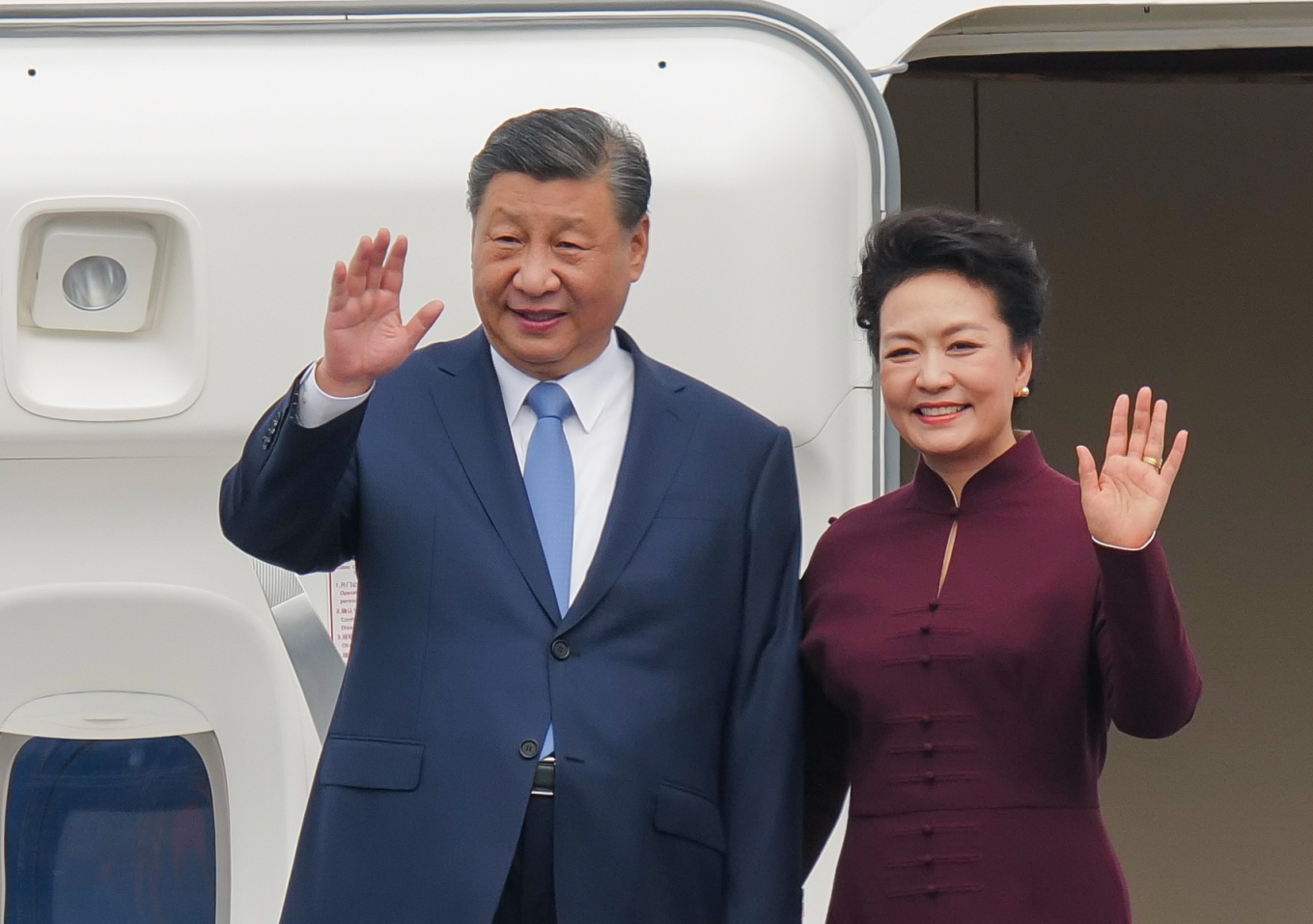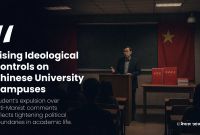Xi struggles to have firm grip over PLA as purges continue

The Chinese Communist Party (CCP) is facing unprecedented turmoil within its military ranks, marked by the removal of nearly a hundred generals, the upheaval of the Rocket Force, and a growing sense of instability within the armed forces. These developments have raised serious questions about the CCP's internal cohesion and its ability to maintain control over its most critical military units.
On March 24th, the CCP's military newspaper published a commentary urging officers and soldiers to align their actions with newly revised joint guidelines introduced in February. The timing of this article is significant, as it closely followed the annual "Two Sessions" political meetings. Reports have surfaced claiming that Vice Chairman of the Central Military Commission, Huang, has been arrested. Allegations also suggest that other high-ranking officials, including the former head of the General Logistics Department and the Nanjing Military Region Commander, have been detained. While these claims remain unverified by the CCP, they hint at a sweeping purge within the military. This development has sparked widespread speculation about internal instability and the potential reshaping of the military’s leadership structure, raising questions about the broader implications for the CCP’s control and governance.
The situation escalated further on March 25th, when it was revealed that the Rocket Force's new commander, Wang Houbin, had been removed from his position. Wang, who had transitioned from the navy to lead the Rocket Force in 2023, was reportedly taken directly from his office. His downfall, along with that of other senior officials, has heightened tensions within the military. Wang was closely associated with Miao Hua, a Central Military Commission member who fell from grace last year. Both were once considered trusted allies of Xi Jinping, but their removal has fuelled speculation about intense power struggles at the highest levels of the CCP.
Xi Jinping's recent inspection of troops in Kunming further underscores the turmoil. Notably, no members of the Central Military Commission accompanied him—a highly unusual occurrence that hints at significant discord within the military leadership. Analysts suggest that Xi may not be orchestrating these purges but rather facing resistance from within the ranks. The military appears to be splintering into rival factions, undermining Xi's control.
The Rocket Force's upheaval is particularly alarming, given its strategic importance. As the unit responsible for China's missile and nuclear capabilities, the Rocket Force has long been regarded as a cornerstone of Xi's military strategy. Its leadership shakeup raises concerns about the CCP's ability to maintain the operational readiness of its most critical assets.
These internal challenges come at a time when China is grappling with external pressures, including a sluggish domestic economy and international sanctions. Experts say that the CCP's economic reforms are contingent on political reforms, but with politics at a standstill, the entire system is paralyzed. Over the past decade, Xi has used anti-corruption campaigns to consolidate power within the military, installing loyalists like Huang and Wang in key positions. However, the current wave of purges suggests that even Xi's allies are no longer immune, indicating a fracturing of the CCP's power core.
The implications of these developments extend beyond China's borders. According to Professor Yuan Hen, Xi has reportedly set his sights on launching a military campaign across the Taiwan Strait in 2027, aiming to achieve the unification of Taiwan. This move is seen as a bid to secure his reelection at the 21st National Congress of the CCP and cement his legacy as a leader on par with Mao Zedong. However, internal military issues have already forced Xi to postpone earlier plans for a 2025 invasion, originally timed to exploit perceived instability in the United States during its presidential election. Contrary to Xi's expectations, the U.S. experienced a smooth power transition in early 2025, while the CCP's military struggles rendered it incapable of sustaining a large-scale conflict.
Taiwan, meanwhile, has taken steps to bolster its defences. President Lai Ching-te recently introduced protective laws against espionage, signalling Taiwan's resolve to safeguard its sovereignty. Lai's actions underscore Taiwan's determination to resist external aggression and assert its right to self-determination.
The CCP's internal military shakeups and strategic ambitions have far-reaching implications for the global political landscape. As Xi grapples with resistance within his own ranks, the stability of China's military and its ability to project power remain in question. Without significant reforms to address corruption and factionalism, the CCP risks undermining its own strategic objectives.




![From Kathmandu to the World: How Excel Students Are Winning Big [Admission Open]](https://nepalaaja.com/img/70194/medium/excel-college-info-eng-nep-2342.jpg)
